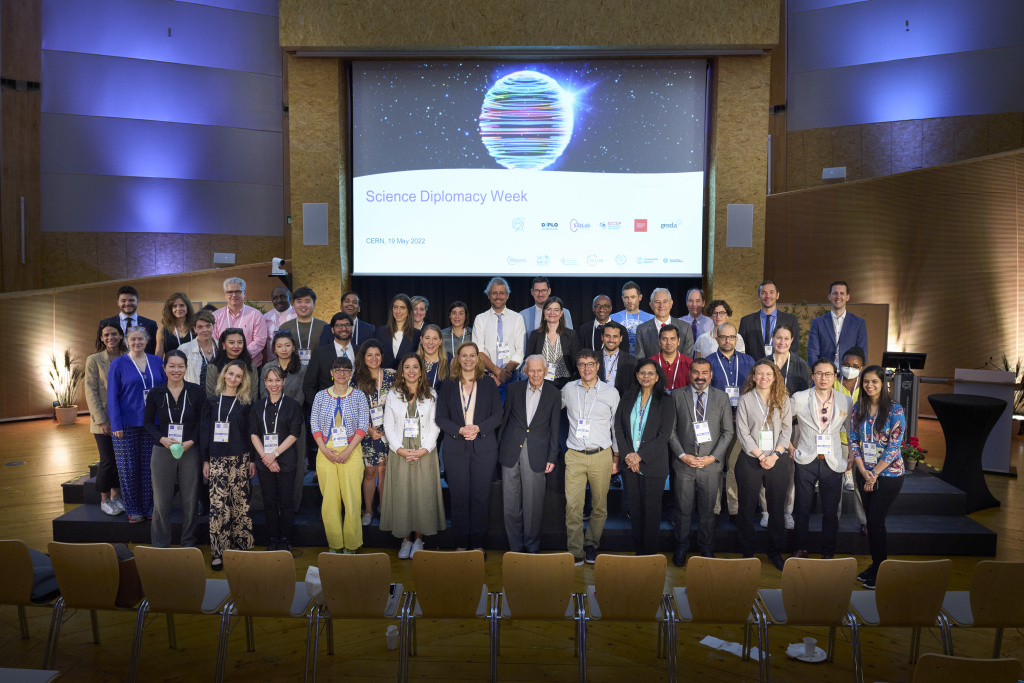Attending the GESDA Science Diplomacy Week Immersion Program

Prof. Dr. Renaud B. Jolivet shares a first-hand account of the GESDA Science Diplomacy Week.

Attending the GESDA Science Diplomacy Week Immersion Program
Prof. Dr. Renaud B. Jolivet, Maastricht University
In mid-May, I had the opportunity to attend the Science Diplomacy Week Immersion Program organized by GESDA in Geneva, Switzerland. GESDA (Geneva Science and Diplomacy Anticipator) is an initiative from the Swiss government – and affiliated organizations – to sustain the long-lasting relevance of Geneva as a place of international diplomatic discourse, with a focus on anticipatory science and technology. The program was thus focused on science- and technology-related organizations based in Geneva. The participants had the opportunity to meet the leadership of organizations such as the World Meteorological Organization (WMO), CERN (European Organization for Nuclear Research), the Geneva Centre for Security Policy (GCSP), Swissnex, and the Graduate Institute (IHEID). As the name of the program implies, it is an immersion week in the so-called “Genève Internationale”, rather than a training course on science diplomacy. If you have ever dreamt of visiting the UN Palais des Nations in Geneva, or the WMO building, where the International Panel on Climate Change meetings take place, or CERN – one of the largest scientific laboratories in the world – this is your chance. Even for myself, a native of the region and recently employed at CERN for four years, there were quite a few novelties to discover.
The agenda was packed, and I only regret a relative lack of pauses to interact informally with the speakers and with the other participants to the program. The cast of the program, however, was very diverse and excellent. I met several interesting people, whom I am certain will be now an integral part of my continuous professional development.
Among the great variety of sessions, one of my personal highlights was spending a morning with the Secretary-General of WMO and his predecessor. If anyone needed convincing, they really highlighted for us the urgency of the climate crisis, and the impact it is likely to have on our societies. We had the opportunity to hear one of the former CERN Director-General, who framed the current conflict in Ukraine in a very personal and emotional manner. Finally, I was very impressed by our visit at, and the training offered by, the GCSP. I can only recommend anyone with an interest in the impact of science and technology on our societies to check their extensive course and program catalogue. Swissnex is an excellent initiative by the Swiss government to establish a form of pragmatic scientific and technological diplomacy.
The training will be applicable to my career in many ways, especially coupled with what I learned from my fellow participants. As a scientist, I have recently been nominated with my colleague Prof. Agnieszka Wykowska (IIT, Genoa, Italy) to the ERA Forum at the European Commission, to represent all individual researchers and innovators (the so-called stakeholder group 4).
GESDA has recently been renewed and expanded by the Swiss government and has now a horizon of at least a decade. The program I attended was the first of its kind, and I am sure that the organizing team will continue to build on this program in forthcoming years.